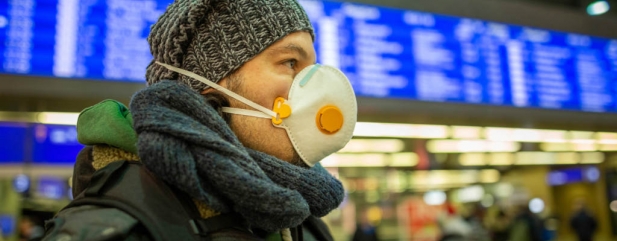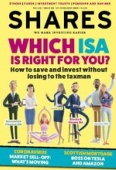Archived article
Please note that tax, investment, pension and ISA rules can change and the information and any views contained in this article may now be inaccurate.
The stocks sinking and soaring as global markets wobble

On 24 February stock markets finally seemed to hit the panic button on the coronavirus with the FTSE 100 hitting its lowest level since early December and the Dow Jones index in the US enduring its worst day in two years.
WHAT TRIGGERED THE MARKET SELL-OFF?
The catalyst for the big sell-off in global equities was news of significant outbreaks in Italy and Iran which seemingly had no direct link to China. The spread of a meaningful number of cases to a European country in particular seemed to alarm investors.
As we write the World Health Organisation has resisted declaring a pandemic, which is loosely defined as when a new disease to which people do not have immunity spreads around the world beyond expectations. However, experts have warned we are at a ‘tipping point’ after which it will be difficult to prevent a pandemic.
For a period the markets seemed remarkably relaxed about the impact of the coronavirus, with indices like Germany’s DAX and the S&P 500 in the US reaching record highs despite the worsening situation in mainland China.
Gradually sentiment has turned, first as the supply chain risks we previously flagged became real thanks to Apple’s iPhone sales warning. It became increasingly clear the impact of the virus wouldn’t be contained to China.
UBS chief investment officer Mark Haefele has some sound advice for anyone spooked by the latest developments. He says: ‘As with any sudden sell-off, it is important for investors to maintain a long-term perspective, and to manage risks through asset class and global diversification.
‘It is also important not to neglect other factors which can drive the market, particularly given that monetary, fiscal and other policy responses to the crisis could emerge in the coming days and weeks.’
WHAT’S HAPPENED TO COMMODITY PRICES?
Commodity prices have arguably been a canary in the coal mine for the economic impact of this health crisis. Oil prices fell well before there was a significant sell-off in global stocks. At time of writing Brent crude traded around the $55 per barrel mark, having moved above $70 at the beginning of 2020 on tensions between the US and Iran.
Gold prices have surged as people have sought out safe haven assets and despite some subsequent profit taking in the precious metal it remains within sight of multi-year highs.
WHICH STOCKS AND SECTORS HAVE BEEN HIT?
Not all sectors are affected equally by the coronavirus. Initially the focus was on those companies with exposure to the Chinese consumer or manufacturing bases in the country. Now the spread of the virus is starting to have a broader impact on the world of business.
This is most obvious in the travel sector which could see a pronounced reduction in demand as people’s fears about the risk of infection grow. The impact could be particularly acute if there are serious outbreaks in key holiday destinations in the Mediterranean.
On 25 February a string of UK stocks warned on the coronavirus impact: engineering consultant Ricardo (RCDO), heat resistant product maker Morgan Advanced Materials (MGAM) chemicals business Croda (CRDA) and aerospace firm Meggitt (MGGT) all cited it as a headwind.
WHAT COULD HAPPEN NEXT?
The next two weeks could be crucial as 14 days appears to be the rough incubation period of the disease. At the end of this spell we should have an indication of whether the significant incidences of disease in Italy, Iran and South Korea will prove the exception or the precursor to a pandemic affecting a larger number of countries.
Hafefe at UBS adds: ‘If Europe and/or North American nations were to replicate the aggressive containment measures employed in China, it could mean materially lower economic growth in the first half of the year, and require offsetting actions from monetary and fiscal authorities to prevent a prolonged downturn.’
The positive news is that China does seem to have achieved a measure of control over the coronavirus with the number of new cases slowing. Nina Deka, healthcare analyst at specialist asset management ROBO Global, observes: ‘Pharmaceutical companies like Regeneron, J&J, AbbVie, and Gilead have been racing round-the-clock to develop treatments and vaccines.’ However the WHO has suggested it could be 18 months before a vaccine is publicly available.
Important information:
These articles are provided by Shares magazine which is published by AJ Bell Media, a part of AJ Bell. Shares is not written by AJ Bell.
Shares is provided for your general information and use and is not a personal recommendation to invest. It is not intended to be relied upon by you in making or not making any investment decisions. The investments referred to in these articles will not be suitable for all investors. If in doubt please seek appropriate independent financial advice.
Investors acting on the information in these articles do so at their own risk and AJ Bell Media and its staff do not accept liability for losses suffered by investors as a result of their investment decisions.

 magazine
magazine












